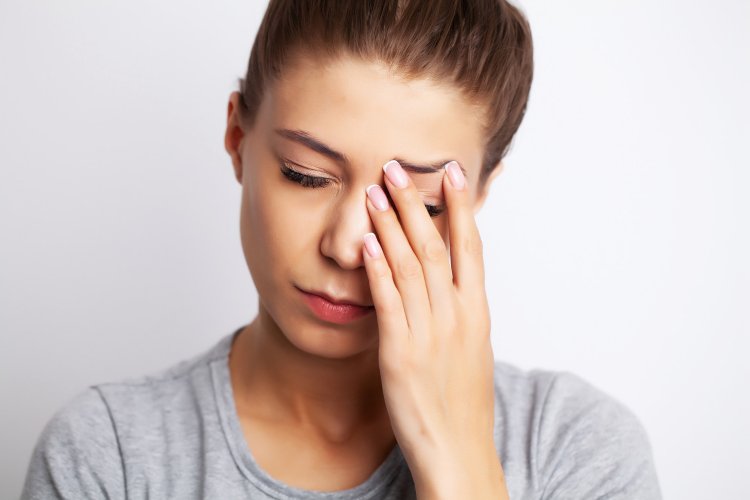From Dryness to Clarity: Managing and Treating Dry Eye
Dry eye, medically known as keratoconjunctivitis sicca, is a widespread condition that occurs when the eyes do not produce enough tears or when the tears evaporate too quickly. This condition can lead to inflammation and damage to the eye's surface, causing discomfort and potentially affecting vision. Here, we delve deeper into the symptoms, causes, diagnosis, and treatment options for dry eye.

What is Dry Eye?
Dry eye is a multifactorial disease characterized by a loss of homeostasis of the tear film, accompanied by ocular symptoms in which inflammation and damage of the ocular surface play central roles. Adequate tear production and quality are essential for maintaining the health of the eye's surface and ensuring clear vision.
Symptoms of Dry Eye
The symptoms of dry eye can vary in intensity and duration. Common symptoms include:
- Persistent Dryness: A sensation of dryness in the eyes is the hallmark symptom of dry eye.
- Redness: The conjunctiva (the white part of the eye) may appear red and inflamed due to irritation.
- Burning or Stinging: Many individuals experience a burning or stinging sensation in their eyes.
- Sensitivity to Light (Photophobia): Bright lights can become uncomfortable or painful to look at.
- Blurred Vision: Vision may intermittently become blurry, especially after prolonged visual tasks.
- Eye Fatigue: Eyes may feel unusually tired, particularly after reading or using digital devices.
- Mucus Discharge: Stringy mucus may be present in or around the eyes.
- Foreign Body Sensation: A feeling that there is something gritty or foreign in the eye is common.
- Watery Eyes: Paradoxically, dry eyes can sometimes cause excessive tearing as the eyes attempt to compensate for dryness.
Causes of Dry Eye
The causes of dry eye can be diverse, often involving a combination of factors:
- Aging: Tear production tends to decrease with age, making dry eye more common among older adults.
- Hormonal Changes: Women, especially those who are pregnant, using oral contraceptives, or experiencing menopause, are more prone to developing dry eye due to hormonal fluctuations.
- Medications: Certain medications, including antihistamines, decongestants, antidepressants, and blood pressure medications, can reduce tear production.
- Medical Conditions: Autoimmune diseases like Sjögren's syndrome, rheumatoid arthritis, lupus, and conditions such as diabetes and thyroid disorders can cause dry eye.
- Environmental Factors: Exposure to wind, smoke, dry air, and air conditioning can increase tear evaporation.
- Prolonged Screen Time: Extended use of computers, smartphones, and other digital devices can reduce the blink rate, leading to increased tear evaporation.
- Contact Lenses: Long-term use of contact lenses can interfere with tear production and distribution, contributing to dry eye.
- Eye Surgery: Procedures like LASIK can temporarily disrupt tear production.
Diagnosis of Dry Eye
Diagnosing dry eye involves a thorough eye examination and specific tests to evaluate tear production and eye surface condition. Key diagnostic methods include:
- Comprehensive Eye Exam: An eye doctor will review the patient’s medical history, symptoms, and conduct a detailed examination of the eyes.
- Schirmer Test: This test measures tear production using a small strip of paper placed under the lower eyelid.
- Tear Break-Up Time (TBUT): This test assesses how quickly tears evaporate from the surface of the eye.
- Ocular Surface Staining: Special dyes, such as fluorescein or lissamine green, are used to highlight damage to the corneal and conjunctival cells.
- Tear Osmolarity Test: Measures the composition and concentration of particles in the tears, which can indicate dry eye severity.
Treatment Options for Dry Eye
Treatment for dry eye focuses on restoring or maintaining the natural tear film, reducing discomfort, and preventing damage to the eye's surface. Treatment options include:
- Artificial Tears: Over-the-counter lubricating eye drops can help supplement natural tear production and relieve symptoms.
- Prescription Eye Drops: Medications such as cyclosporine (Restasis) and lifitegrast (Xiidra) can help increase tear production and reduce inflammation.
- Punctal Plugs: Tiny plugs inserted into the tear ducts can help retain tears on the eye's surface longer.
- Warm Compresses and Eyelid Hygiene: Applying warm compresses and maintaining good eyelid hygiene can help improve oil gland function in the eyelids.
- Environmental Modifications: Using humidifiers, avoiding direct air flow from fans or air conditioning, and taking breaks during prolonged screen use can reduce tear evaporation.
- Dietary Supplements: Omega-3 fatty acids found in fish oil supplements can improve the quality of tears and reduce symptoms for some individuals.
- Autologous Serum Drops: For severe cases, eye drops made from the patient’s own blood serum may be used to promote healing.
- Surgical Options: In rare and severe cases, surgical interventions may be necessary to correct underlying issues contributing to dry eye.
In conclusion, Dry eye is a chronic condition that can significantly impact quality of life if left untreated. Understanding the symptoms and causes is essential for early detection and effective management. With a range of diagnostic tools and treatment options available, individuals suffering from dry eye can find relief and maintain eye health through appropriate medical care and lifestyle adjustments. If you experience persistent symptoms of dry eye, consulting an eye care professional for a comprehensive evaluation and tailored treatment plan is recommended.
Disclaimer
The information provided in this article is for educational purposes only and should not be considered medical advice. If you have any health concerns or are experiencing symptoms, it is important to consult with a healthcare professional, such as a doctor or clinic, for proper diagnosis and treatment. Always seek the advice of your doctor or other qualified health provider with any questions you may have regarding a medical condition. Do not disregard professional medical advice or delay in seeking it because of something you have read in this article.
Hashtags
#DryEye #EyeHealth #MedicalAdvice #Symptoms #Causes #Treatment #Healthcare #VisionCare
What's Your Reaction?





















